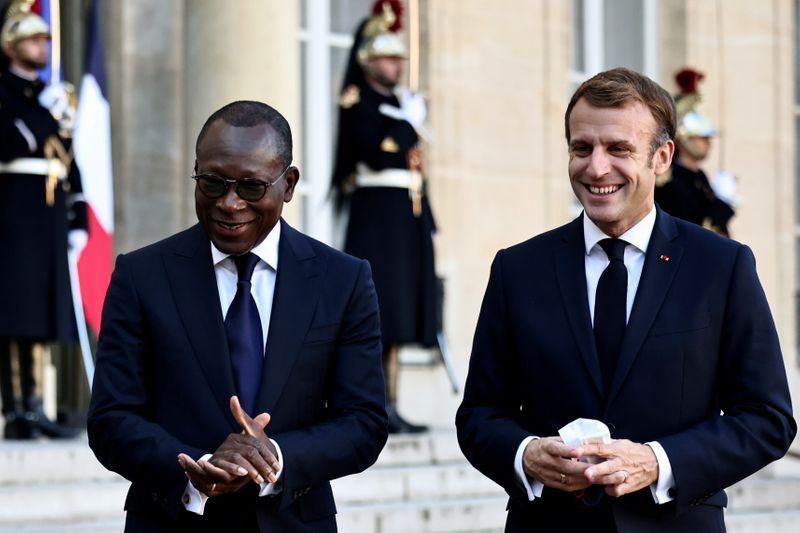COTONOU (Reuters) – Twenty-six works of art seized by French colonial soldiers in 1892 returned to Benin on Wednesday, a landmark in the long fight by African countries to recover looted artefacts.
The works, which include the doors of the Palace of Abomey, royal thrones and warrior dance staffs, were formally welcomed back to Benin at a ceremony presided over by President Patrice Talon.
Talon received the works from the French government in Paris on Tuesday.
“This return is a testimony to what we have been, a testimony that we existed before, a testimony to what we have known,” Talon said before an audience that included representatives of Benin’s royal families.
The artefacts will initially be housed in a museum in the city of Ouidah before being transferred to a new museum being built in Abomey, site of the royal palaces of the Kingdom of Dahomey.
The restitution is the largest France has made to a former colony, but it represents only a fraction of the 5,000 works whose return Benin is seeking and the tens of thousands of seized African works held in France.
About 90% of Africa’s cultural heritage is now believed to be in Europe. The Quai Branly museum alone holds some 70,000 African objects. A 2018 report commissioned by the French government said around 46,000 of them should qualify for repatriation.
That report, by Senegalese economist Felwine Sarr and French art historian Benedicte Savoy, recommended the full restitution of all objects taken by force or presumed to be acquired through inequitable conditions.
France has returned several other objects to former colonies in Africa and says it plans to continue to do so. But advocates for restitution, including Talon, have said the process has been too slow and limited in scope.
Several other European museums and governments have also moved to return works of art to Africa at a time when its institutions are grappling with the cultural legacies of colonialism.
The German government announced in April that it aimed to start returning Benin Bronzes, copper alloy relief sculptures from the Kingdom of Benin, to Nigeria next year.
(Reporting by Allegresse Sasse and Aaron Ross; Editing by Giles Elgood)






















